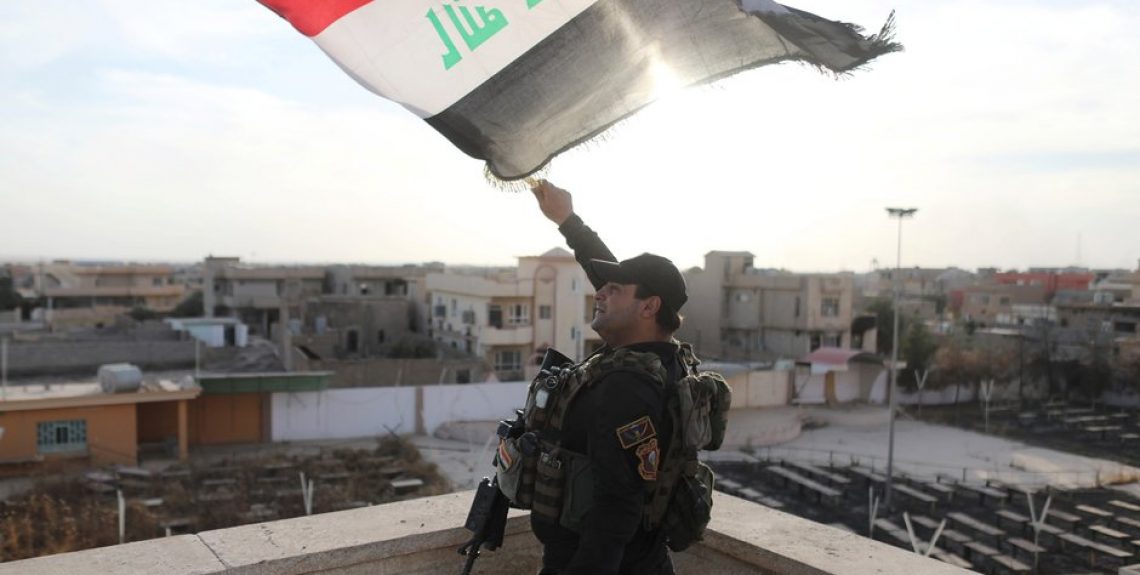
Levant and politics: jihadism retreats only temporarily
Al-Muhallil ● 4 February 2020

Share on
Archive



European defence: hard numbers, fuzzy perspectives
8 January 2024

Reviving the Florence disarmament agreement
29 December 2023

Near East and Gulf regional issues: the impact on NATO
22 December 2023

Smart power in a volatile international environment
28 November 2023

Food security — a soft spot in Taiwan’s silicon shield?
20 November 2023

Algeria and its role in the Sahel
24 October 2023



US – Kazakhstan: a relevant relationship to be strengthened
9 October 2023


The Arab League’s fragmented summit
14 June 2023

The new EU ASAP ammunition plan
25 May 2023



European defence industrial policy: new tools
24 February 2023

Ukraine: the rumblings of war
9 February 2023
The Russia-Belarus Union: reversing the Pilsudski doctrine – Giorgio Cella
HOW MANY NUKES HAS THE POPE? – CARLO TREZZA
TURKEY, AN ESSENTIAL ALLY – LAURA MIRAKIAN
SAHEL: A FACTORY FOR “SYSTEMIC” TERRORISM – ANDREA SPERINI
KOREAS: TIME TO DEVELOP THE DIALOGUE – CARLO TREZZA
TRUMPING SYRIA – Giorgio Cella
KERCH AND THE BLACK SEA DILEMMA: DE-ESCALATION OR APPEASEMENT – Giorgio Cella
PREVENTING THE US WITHDRAWAL FROM THE INF TREATY – CARLO TREZZA and STEFANO BORGIANI
The evolution of the Visegrad Four and their geopolitical stakes – GIOVANNI SOLIGO
AS BREXIT GOES BY, THE CSDP IS INCREASINGLY MUDDLED – ALESSANDRO POLITI
The Putin-Trump nexus – Carlo Trezza
NEW VALUES…OLD LEADERS – Besa Kabashi
The “Nebulous” Naples Hub: Is There a Strategic Direction for the South? – Alessandro Minuto Rizzo
STATIONING NUCLEAR WEAPONS IN EUROPE TODAY – Carlo Trezza
WE, THE RUSSIAN, THE WESTERN BALKANS – Laura Mirakian
ADDRESSING THE ISSUE OF NUCLEAR WEAPONS TODAY – Carlo Trezza
NATO ISN’T OBSOLETE, IT MUST BE ADAPTED – Giampaolo Di Paola
Middle East Reshuffling: an Overview from Russia – Roberto d’Agostino
NORTH KOREA: THE NECESSITY OF A DIPLOMATIC INITIATIVE – Carlo Trezza
The Future of NATO – Julian Lindley French
NATO CENTRE IN KUWAIT, A GOOD PROMISE TO KEEP – Alessandro Minuto-Rizzo and Eleonora Ardemagni
CHINA AND THE NEW MIDDLE EAST SECURITY ARC – Christina Lin
THE IRAQI QUESTION – Maurizio Melani
THE STRATEGIC SIGNIFICANCE OF THE NEW NATO-ICI REGIONAL CENTRE IN KUWAIT – Jean-Loup Samaan
CYBER SECURITY: A NEW CHAPTER FOR ARMS CONTROL – Carlo Trezza
Subscribe to our newsletter
We use cookies to ensure that we give you the best experience on our website. If you continue to use this site we will assume that you are happy with it.Ok

